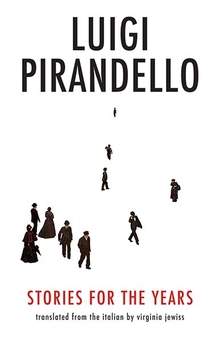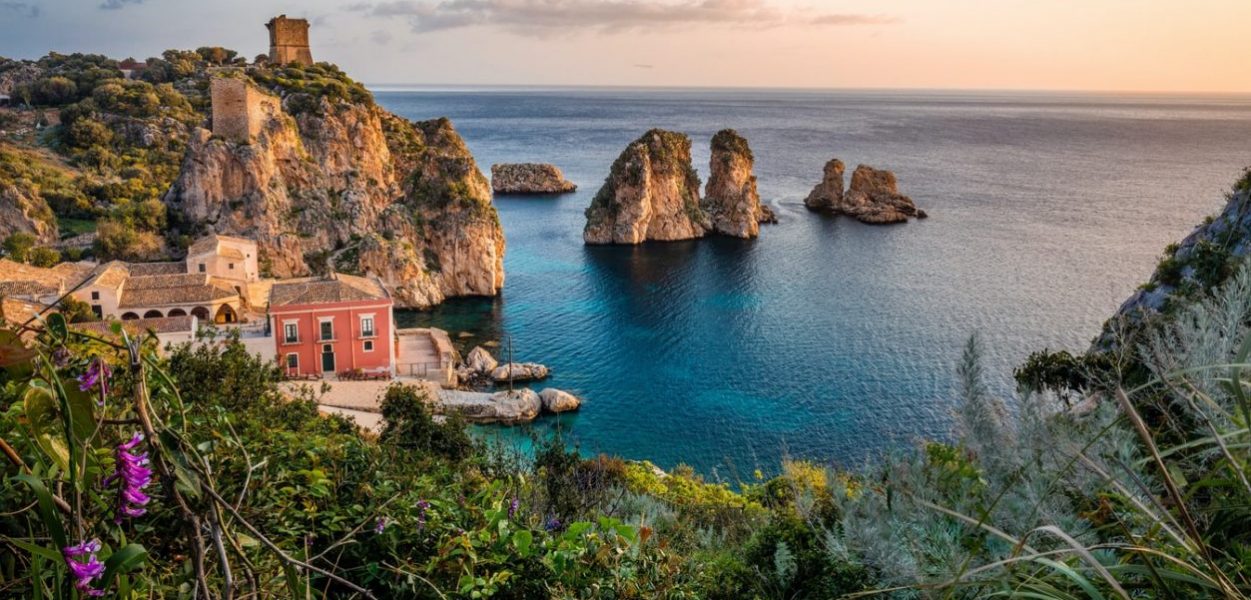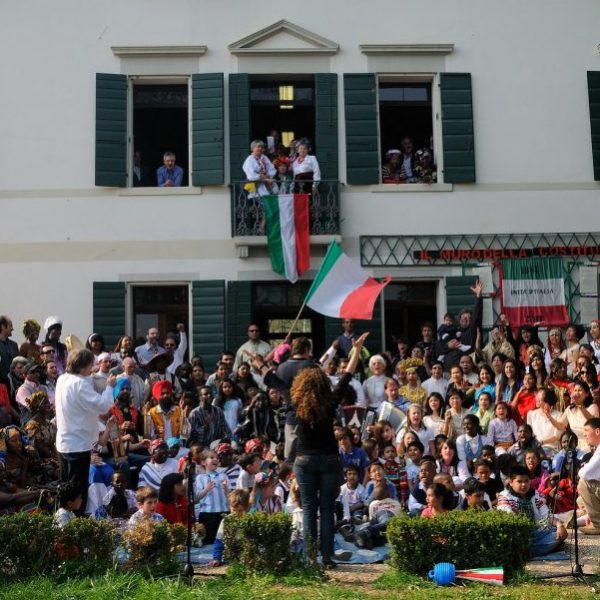Trouble in Sant’Anna
Luigi Pirandello—
Without knowing how or why, one fine day Jaco Naca found himself the owner of the whole sunny hillside below the city, from which there was a magnificent view of the open countryside, of hills and valleys and plains, and in the distance the sea, far away, after all that green, blue on the horizon.
Some three years back, a foreigner, with a wooden leg that creaked at every step, had appeared, all in a sweat, at a farmhouse in the narrow, malaria-infested valley of Sant’Anna, where Jaco, yellow with fever, shivering to the bone, and ears buzzing from quinine, worked as a farmhand; the foreigner announced that a thorough search of the records had led him to discover that that hillside there, which until then was believed to be without an owner, actually belonged to Jaco: if he were willing to sell him part of it, for some still rather vague plans of his, he’d pay the official appraisal.
Rocks really, nothing more, with a tuft of grass here and there, which not even the sheep bothered to nibble as they went by.
Soured by the slow poison of disease that had destroyed his liver and consumed his flesh, Jaco Naca felt barely any surprise or pleasure at his good fortune, and sold the wooden-legged foreigner the better part of those rocks for a pittance. But when, less than a year later, he saw rising up on the hill two small villas, one more charming than the next, with marble terraces and stained-glass verandas, the likes of which had never been seen in these parts—such elegance!—each with its own pretty little flower garden, each adorned with gazebos and fountains on the side facing the city, and vegetable patches and pergolas on the side facing the sea; and when he heard everyone commend, with admiration and envy, the shrewdness of the cripple, who came from who knows where, and who, with the rent from those twelve furnished apartments situated in such a pleasant spot, would not only recoup his expenses in a few short years but make himself a nice little bundle besides, well, he felt cheated and deceived. The surly sluggishness that had allowed him to endure misery and misfortune for so long, like a sick beast, suddenly turned into rabid bitterness, and so, between violent outbursts and exasperated tears, stomping his feet, biting his hands, and tearing his hair, Jaco Naca cried out for justice and revenge against that swindling thief.
Unfortunately, it’s often true that, in trying to avoid one problem, you run smack into an even bigger one. That wooden-legged foreigner, to avoid the trouble of all those disturbing recriminations, was rashly persuaded to slip Jaco Naca a little something extra, on the sly, above and beyond the selling price: nothing much, but Jaco Naca naturally suspected that that little something extra was handed to him on the sly like that because the foreigner wasn’t completely convinced of his rights and wanted to placate him. Lawyers don’t exist for nothing; Jaco Naca appealed to the law courts. And so, while the few pennies he’d made on the sale went to cover amendments and appeals, he devoted himself with rabid obstinacy to cultivating what remained of his property: the very bottom of the little valley, below the rocks, where the rainwater, coursing in wide rivulets over the rough, steep slope of the hill, had deposited a bit of soil.
People compared him then to a slow-witted dog who, having let a meaty leg of lamb be snatched from him, now furiously breaks his teeth on the bone abandoned by whomever enjoyed the juicy bits.
A miserable little vegetable patch, twenty or so equally miserable almond trees that still looked like stumps among the stones, had sprouted down in that little valley, narrow as a grave, in those two years of dogged labor; while up above, light and airy before the spectacle of countryside and sea, the pretty little villas sparkled in the sun, inhabited by rich people, who were naturally—or so Jaco Naca imagined—also happy. Happy, if for no other reason than for his grief and misfortune.
To spite those happy people and avenge himself thus on the foreigner, when there was nothing left to do, he dragged a big guard dog down into the ditch, tied him to a short chain, and left him there, night and day, dying of hunger, thirst, and cold.
“Cry out for me!”
From Stories for the Years by Luigi Pirandello, translated by Virginia Jewiss. Published by Yale University Press in 2020. Reproduced with permission.
Luigi Pirandello (1867–1936) is one of Italy’s most significant literary figures of the last century. Virginia Jewiss is a translator of Italian literature and cinema.
Further Reading:



























